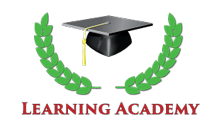
- Description
- Objectives
- Outline
- Materials
- Certification
- System Requirements
- Watch a Demo
This EKG Technician program covers the essential day to day tasks of an EKG technician, as well as medical terminology.
EKG Technician
EKG Technicians are in high demand! EKG Technicians work in hospitals, health care centers, physician’soffices and other healthcare facilities. In the next five years, the number of positions as an EKG Tech will increase by approximately 25%! Our course will provide students with comprehensive, up-to-date information of the day to day functions and procedures carried out by the EKG Technician. Our program covers the anatomy and physiology of the heart, electrocardiography and echocardiography, the components, function and proper use of the EKG machine, how to read normal rhythms and arrhythmias, waves and measurements, and how to set up and use pacemakers as well as prepare patients for holter and event monitoring. Start your EKG program today and open the door for increased job opportunities, pay scales and job security.
Recommended: A solid knowledge of Medical Terminology.
Medical Terminology: An Overview
Medical terms can be complex, confusing and difficult to memorize. By understanding the origins of the words and their building blocks - such as roots, prefixes and suffixes, the terminology will make sense and be easier to use in everyday settings such as doctor’s offices, labs, pharmacies, hospitals and clinics. This course is structured to help you break down commonly used terms and understand how medical terminology relates to body parts, diseases and procedures.
** Course Subject to Change.
EKG Technician
After completing this course, you should be able to:
- Define coronary anatomy and state what occurs in each phase of the cardiac cycle
- Recognize and interpret the basics of the EKG and five steps of rhythms
- Differentiate between the three types of rhythm regularity
- List the criteria, causes, and adverse effects of AV blocks
- Recall the differences between AICD, AED, defibrillators and other monitors
Medical Terminology: An Overview
After completing this course, you should be able to:
- Identify the foundation of medical terminology
- List functions of major body systems such as skeletal, muscular and sensory
- Recall how your blood vessels, lymph nodes and heart work together
- Recognize the fundamentals of the body’s endocrine system, central nervous system and the male and female reproductive systems
EKG Technician
EKG Technician Module 1
Cardiac Anatomy, Electrophysiology and Lead Morphology
- Layers of the Heart
- Blood Flow Through the Heart
- Nervous Control of the Heart
- The Cardiac Cycle
- Depolarization and Repolarization
- Waves and Complexes Identification
- Intervals
- Lead Types
- Continuous Monitoring
EKG Technician Module 2
Basics of the EKG and Normal Heart Rhythms
- Control Features of an EKG
- Electrical Safety
- Is It Real or Is It Artifact?
- Artifact Troubleshooting
- Artifact Masquerading as Rhythms
- Calculating Heart Rate
- Regularity Types
- Practice Strips: Regularity of Rhythms
- Interpreting Rhythm Strips
- The Five Steps to Rhythm Interpretation
EKG Technician Module 3
Types of Coronary Rhythms
- Rhythms Originating in the Sinus Node
- Adverse Effects for each of the Sinus Rhythms
- Treatment for Sinus Rhythms
- Rhythms Originating in the Atria
- Interpreting a Variety of Atrial Rhythms
- Rhythms Originating in the AV Junction
- Differentiation of high, low, and Midjunctional Impulses
- Treatment and Effects of Junctional Rhythms
- Rhythms Originating in the Ventricles
- Fusion Beats and Wolff-Parkinson-White Syndrome
EKG Technician Module 4
AV Blocks and Rhythm Practice Strips
- Criteria, Causes, Adverse Effects of AV Blocks
- Where AV Blocks are Located
- Identifying AV Blocks on a Variety of Strips
- Degrees of AV Blocks
- Identifying Weak Areas for Further Study
- Sinus Rhythms Summary and Pictorial Review
- Atrial Rhythms Summary and Pictorial Review
- Junctional Rhythms Summary and Pictorial Review
- Ventricular Rhythms Summary and Pictorial Review
- AV Blocks Rhythm Summary and Pictorial Review
EKG Technician Module 5
Interpreting 12-Lead EKG and Myocardial Infarction
- The Six Steps to 12-Lead EKG Interpretation
- Axis Determination
- Bundle Branch Blocks
- Ventricular Hypertrophy
- Miscellaneous Effects
- Symptoms of MI
- Determining the Age of an MI
- The Three I’s of Infarction
- Myocardial Infarction Algorithm
- EKG Complications of MI
EKG Technician Module 6
Advanced Concepts
- 12-Lead EKG Practice
- Medications
- Electrical Therapy
- DDD versus VVI Practice
- Pacemaker Malfunctions Practice
- Therapeutic Hypothermia
- Diagnostic Electrocardiography
- Stress Tests
- Holter Monitoring
- Event Monitoring
Medical Terminology: An Overview
Medical Terminology: An Overview Module 1
Prefixes, Roots, and Suffixes
Module one will take a look at the basics of body anatomy and organization, the foundation of medical terminology and why words are structured the way they are. We will look at the relationship between Greek and Latin roots, prefixes, suffixes and everyday pronunciation.
- History of Medical Terminology
- Applying Different Rules of Pluralization
- Deconstructing Medical Words
- Pronunciation and Everyday Usage
- Organization of the Body
Medical Terminology: An Overview Module 2
Bones, Muscles, Skin and Sensory
Module two discusses the major body systems such as skeletal, muscular and sensory and their root terminology. We will cover how systems function together and how they correlate to the overall health of the human body, as well as pathology, diseases and conditions that affect these systems.
- Terminology of the Skeletal, Muscular, Integumentary and Sensory Systems
- Skeletal Diseases and Pathology
- Classes and Types of Muscles
- Skin Layers and Conditions
- Anatomy of Eyes, Ears and Nose
Medical Terminology: An Overview Module 3
Heart, Lungs and Gastrointestinal
Module three covers how your blood vessels, lymph nodes and heart all work together, as well as how the respiratory system and organs of the digestive system function. We will also recognize the proper way to diagnose gastrointestinal and respiratory conditions according to the specific body part.
- The Cardiovascular and Lymphatic Systems
- Veins, Arteries and Blood Flow
- Organs of the Digestive System
- Gastrointestinal Diseases and Pathology
- Respiratory Terminology and Diagnostic Tests
Medical Terminology Module 4
Hormones, Nerves, Urinary and Reproductive
Module four discusses the fundamentals of the body’s endocrine system, the central nervous system and the male and female reproductive systems. We will also cover easy methods and simple phrases for memorizing medical terms through study guides and tips and tricks.
- Endocrine System and Hormone Functions
- Parts of the Central Nervous System
- Urinary Tract Functions
- Male Reproductive Systems
- Female Reproductive Systems
Ed4Career is committed to being both environmentally conscious and making it easier for you to study! We’re making your education mobile! All of our textbooks are now provided as eTextbooks*. You can access them on your laptop, tablet, or mobile device and can study anytime, anywhere.
The move away from physical books to eTextbooks means you get the latest, most up-to-date version available. This also makes your training more accessible, so you can study anywhere you have your phone or tablet. The best part is that all materials are included in your training cost so there are NO extra fees for books!**
*A few courses still have physical materials.
EKG Technician
Upon successful completion of our EKG course, students will be prepared for an entry-level position as an EKG Technician in a health care center and will be prepared, in part, to sit for the NHA national certification exam to become a Certified EKG Technician (CET) or the CCI national certification exam to become a Certified Cardiographic Technician (CCT).** Certification exams are not included in the cost of the course.**
Internet Connection
- Broadband or High-Speed - DSL, Cable, and Wireless Connections
*Dial-Up internet connections will result in a diminished online experience. Classroom pages may load slowly and viewing large audio and video files may not be possible.
Hardware Requirements
- Processor - 2GHz Processor or Higher
- Memory - 1 GB RAM Minimum Recommended
* While our courses are accessible through multiple mobile learning platforms, some courses may include a CD or DVD with the Textbook, so you may need access to a computer with CD-ROM or DVD Drive.
PC Software Requirements
- Operating Systems - Windows 7 or higher
- Microsoft Office 2007 or higher. Also, you could use a general Word Processing application to save and open Microsoft Office formats (.doc, .docx, .xls, .xlsx, .ppt, .pptx)
- Internet Browsers - Google Chrome is highly recommended
- Cookies MUST be enabled
- Pop-ups MUST be allowed (Pop-up Blocker disabled)
- Kindle Reader App is needed for many of our courses (No special equipment needed. This can be downloaded for FREE onto your computer.)
- PowerPoint Viewer (if you do not have PowerPoint)
- Adobe PDF Reader
- QuickTime, Windows Media Player &/or Real Player
MAC Software Requirements
- Operating Systems - Mac OS x 10 or higher with Windows
- Mac office programs or a Word Processing application to save and open Microsoft Office formats (.doc, .docx, .xls, .xlsx, .ppt, .pptx)
- Internet Browsers- Google Chrome is highly recommended
- Cookies MUST be enabled
- Pop-ups MUST be allowed (Pop-up Blocker disabled)
- Kindle Reader App is needed for many of our courses (No special equipment needed. This can be downloaded for FREE onto your computer.)
- PowerPoint Viewer (if you do not have PowerPoint)
- Adobe PDF Reader
- Apple QuickTime Media Player
- Courses that include a CD-ROM or DVD may require an external drive and Parallels software to view.


